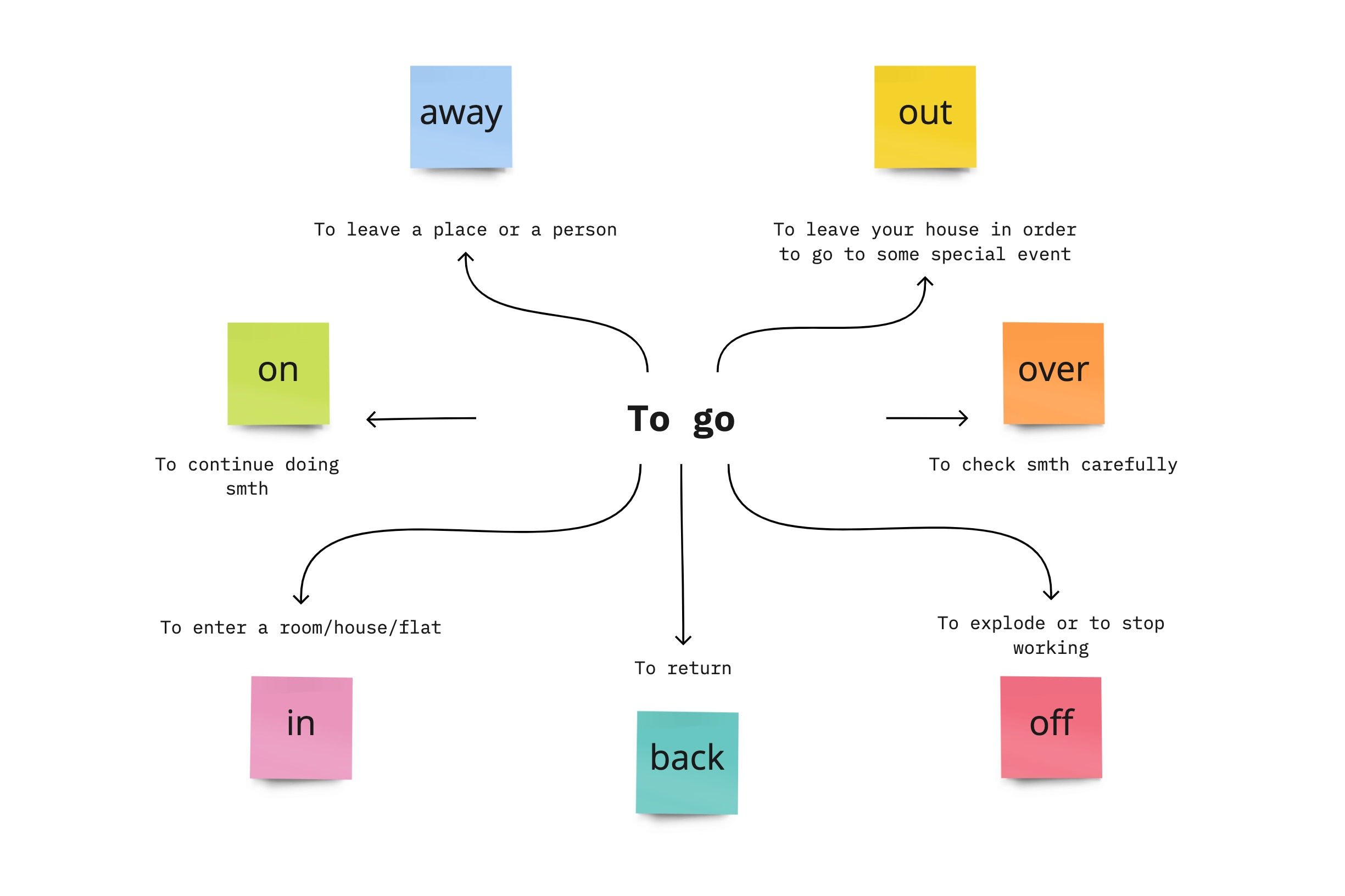What can be easier than to use the verb "to go"? And what about using it as a phrasal verb with different prepositions, like "to go away, to go out, to go ahead, to go at, to go in, to go off, to go on, to go with, to go after, to go along with"? Then let’s talk a bit more on this topic and have it clear whether it is necessary to learn phrasal verbs and how to do it.
Firstly, let us know what a phrasal verb is. In simple words, a phrasal verb is a combination of a verb and a preposition/adverb. The main peculiarity is that the meaning of a phrasal verb and the same separate verb is different, for example, the verb "to go" means "to walk or move towards something", while the phrasal verb "to go on" means "to continue doing something". So, do not forget about it!
Now as we know what a phrasal verb is, let’s find out more about it. Nowadays, in modern English there are hundreds of phrasal verbs. But it’s interesting, that still some phrasal verbs from Middle English (The variant of English, spoken in XI-XV centuries) are widely used, such as "to do someone good", which means to benefit or to improve something/someone. Phrasal verbs were used in all times and it is an essential part of the English vocabulary. And if you hoped not to hear that, you would be disappointed to know that you can not avoid learning them! Native speakers and foreigners all over the world use phrasal verbs everyday, so learn them in order to understand English speech and be able to respond.
But how to learn all phrasal verbs, if there are so many? First of all, try to learn one phrasal verb with different prepositions/adverbs at once. If you perceive information better visually, make a scheme or a cluster with the verb and all the meanings, like in Scheme 1.

Scheme 1 – The example of a scheme with the phrasal verb “to go”
Also, do not forget that a phrasal verb is a common unit, so do not try to separate the verb from the preposition or adverb. For example, if you are translating something and there is a phrasal verb, do not try to translate the verb and the preposition or adverb separately, you can not translate it this way, because the phrasal verb has one meaning, which you can not guess by translating parts of it.
To sum up, remember about the importance of phrasal verbs in the English language and pay attention to studying them properly.










Comments (0)